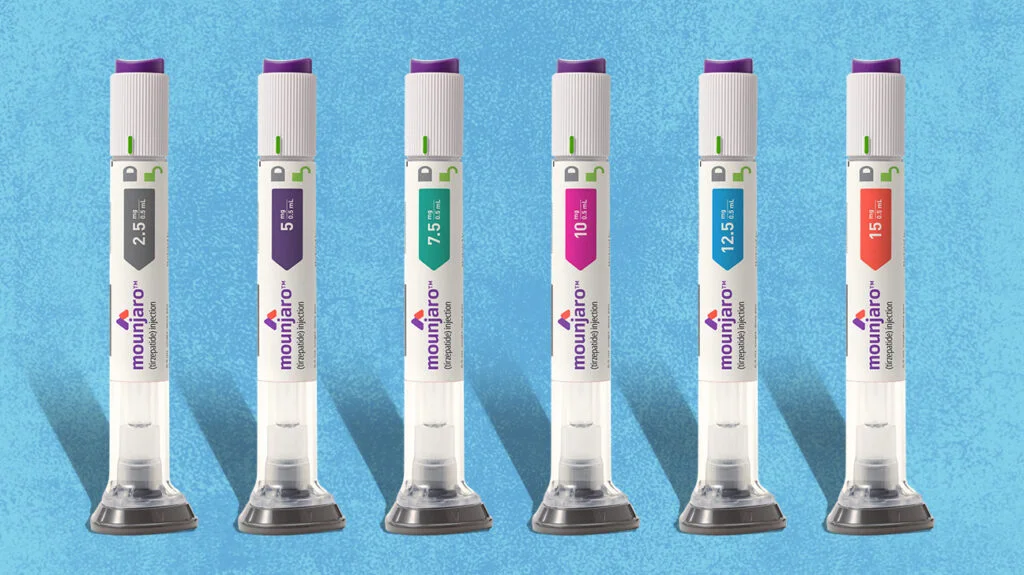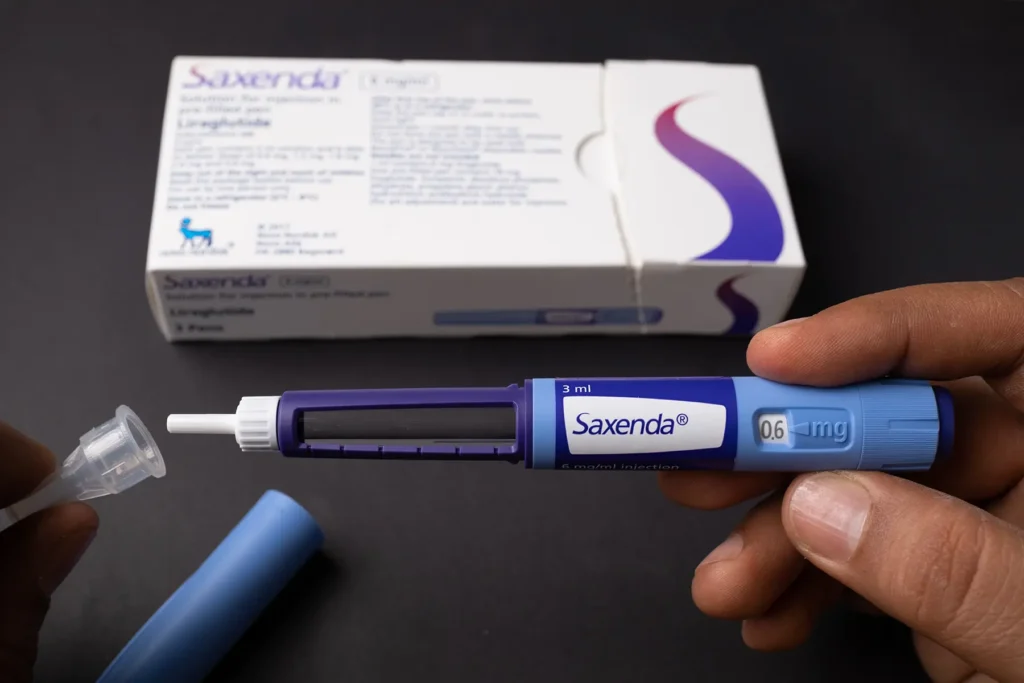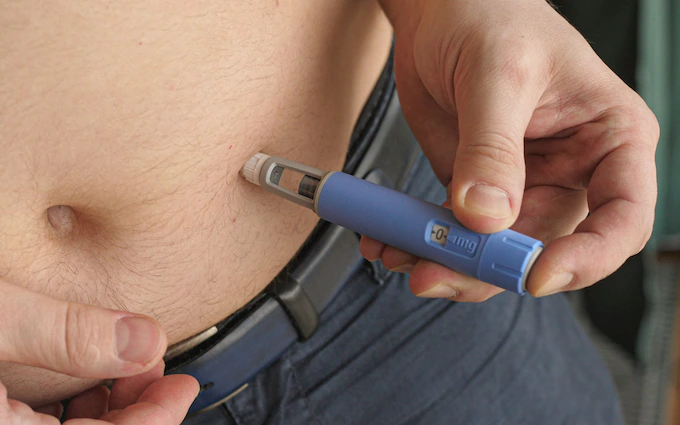Where can I order Mounjaro
“Buy Mounjaro Netherlands Online – Looking for where to order Mounjaro? Purchase Mounjaro in the Netherlands hassle-free with fast delivery and secure payment options. Discover the benefits of this top-rated weight loss solution. Get the best deals and expert advice when you buy Mounjaro from trusted online sources. Whether you’re new to Mounjaro or seeking reliable supply, we provide a seamless ordering experience tailored for customers in the Netherlands. Order now and start your weight loss journey today!”



Services
Buy Ozempic online Safely
Looking to buy Ozempic online? You’re in the right place! Discover how to order Ozempic online easily and securely. Whether you’re searching for reliable sources to buy Ozempic Netherlands online or wondering, “Where can I order Ozempic?” we have you covered. Our platform ensures that you can purchase Ozempic conveniently, offering top-quality products for your health needs. Find all the information on how to buy Ozempic in the Netherlands, including dosage options, benefits, and delivery to your location. We provide fast shipping, discreet packaging, and support throughout the purchasing process. Shop confidently and safely with trusted vendors for all your Ozempic needs in the Netherlands.


Why Choose Us
Our Unique Value Proposition

Effective Solutions
Our weight loss injections have been proven to deliver effective and sustainable weight loss results.
Safe and Reliable
We only offer weight loss injections that are backed by scientific research and have minimal side effects.
Expert Guidance
Our team of experts will provide you with personalised guidance and support throughout your weight loss journey.
OZEMPIC
Is Ozempic used for weight loss?
Ozempic is not approved by the Food and Drug Administration (FDA) for use as a weight management medication. But you might lose weight while you’re taking Ozempic. That’s because the medication decreases your appetite.
In some cases, Ozempic is prescribed off-label for weight management, though this isn’t likely. (With off-label use, a drug that’s approved for certain conditions is prescribed for another purpose.) It’s more likely that your doctor would prescribe Wegovy, which contains the same active ingredient* as Ozempic, called semaglutide. Wegovy is FDA-approved to be prescribed for weight management.
Insurance may not cover off-label uses of Ozempic. Ask your doctor for more information.
If you’re interested in using semaglutide for weight management, talk with your doctor. They can help determine the best medication for you and whether it’s appropriate to prescribe Ozempic off-label.
How Ozempic works for weight loss
Ozempic works to help you lose weight in a few ways:
- It slows down how quickly your stomach empties after eating. This slows your digestion process and can help you feel fuller for longer.
- The drug mimics a hormone called GLP-1 that your body naturally produces. This hormone increases feelings of satiety (feeling full or satisfied after eating).
These effects can also decrease your appetite. For details about how Ozempic works, you can refer to the “How does Ozempic work?” section just below.
Is Ozempic safe and effective for weight loss? How much weight could I lose with Ozempic?
As long as you use Ozempic as your doctor prescribes, it should be safe to use for weight loss.
The amount of weight you might lose during Ozempic treatment depends on a variety of factors, including how long you use Ozempic and what your diet and exercise routine is like. It also depends on how your body responds to the drug.
For more information about Ozempic’s effectiveness for weight loss, you can refer to this comprehensive article about Ozempic for weight loss. You can also talk with your doctor. They can discuss Ozempic’s studies in more detail, and how your lifestyle might affect your weight management treatment.
* An active ingredient is what makes a drug work.
How does Ozempic work?
Ozempic works in several ways to lower blood sugar levels in people with type 2 diabetes. The drug also lowers heart-related risks in people with both diabetes and heart disease.
The drug does this by:
- Increasing the amount of insulin your body makes after a meal so that your blood sugar levels won’t get too high. Insulin is a hormone that lowers your blood sugar levels.
- Slowing the movement of food through your stomach to prevent a big increase in your blood sugar levels.
- Lowering the amount of sugar released into your bloodstream.
Your doctor or a pharmacist can provide details about how Ozempic works in the body.
What are Ozempic’s side effects?
Like most drugs, Ozempic may cause mild or serious side effects. The lists below describe some of the more common side effects that have been reported with Ozempic. These lists don’t include all possible side effects.
Your doctor or pharmacist can tell you more about the potential side effects of Ozempic. They can also suggest ways to help reduce side effects.
Mild side effects
Here’s a short list of some of the mild side effects that have been reported with Ozempic. To learn about other mild side effects, talk with your doctor or pharmacist.
Mild side effects of Ozempic can include:
- constipation
- diarrhea
- nausea
- abdominal pain
- vomiting
Mild side effects of many drugs may go away within a few days or a couple of weeks. But if they become bothersome, talk with your doctor or pharmacist.
Serious side effects
Serious side effects from Ozempic can occur, but they aren’t common. If you have serious side effects from Ozempic, call your doctor right away. But if you think you’re having a medical emergency, you should call 911 or your local emergency number.
Serious side effects can include:
- nausea*
- pancreatitis* (inflammation in your pancreas)
- boxed warning: risk of thyroid tumors or thyroid cancer*
- diabetic retinopathy (damage to your eyes that’s caused by diabetes)
- hypoglycemia (low blood sugar)
- gallbladder disease (which can include gallstones and inflammation of your gallbladder)
- allergic reaction*
* For more information about this side effect, see the “Side effect focus” section below.
Side effect focus
Learn more about some of the side effects Ozempic may cause.
Boxed warning
Ozempic has a boxed warningTrusted Source, which is a serious warning from the Food and Drug Administration (FDA).
Ozempic has been shown to cause thyroid tumors and thyroid cancer in animals. It isn’t known if Ozempic can cause thyroid tumors or medullary thyroid cancer in humans.
If you have a family or personal history of medullary thyroid cancer or a rare endocrine condition called multiple endocrine neoplasia syndrome type 2, you should not take Ozempic.
Talk with your doctor if you have either of these conditions or a family history of them.
What might help?
Be sure to call your doctor immediately if you have any signs or symptoms of a thyroid tumor while taking Ozempic. These include:
- a lump on your neck
- long-lasting hoarseness in your voice
- shortness of breath
- trouble swallowing
Nausea
Ozempic can cause nausea, especially when you first start taking the medication or when your dose changes. Usually, nausea should go away after a few days.
But keep in mind that nausea can also be a symptom of pancreatitis (inflammation in your pancreas). And pancreatitis is a serious side effect of Ozempic.
If you have nausea that doesn’t go away after a few days, worsens, or becomes severe, call your doctor right away.
What might help?
If you have nausea while taking Ozempic, your doctor may suggest ways to help manage your symptoms. These may include taking over-the-counter or prescription medications until your nausea gets better. Be sure to check with your doctor before taking any medications for nausea with Ozempic.
Pancreatitis
Ozempic may cause pancreatitis (inflammation of the pancreas). This is a serious condition.
Call your doctor right away if you have any symptoms of pancreatitis. These may include:
- pain, tenderness, or swelling in your upper abdomen
- nausea
- vomiting
Doctors typically won’t prescribe Ozempic if you’ve had pancreatitis in the past.
WEGOVY
What are Wegovy’s side effects?
Like most drugs, Wegovy may cause mild or serious side effects. The lists below describe some of the more common side effects of Wegovy. These lists don’t include all possible side effects.
Keep in mind that side effects of a drug can depend on:
- your age
- other health conditions you have
- other medications you take
Your doctor or pharmacist can tell you more about the potential side effects of Wegovy. They can also suggest ways to help reduce side effects.
Mild side effects
Here’s a list of some of the mild side effects that Wegovy can cause. To learn about other mild side effects, talk with your doctor or pharmacist, or read Wegovy’s prescribing information.
Mild side effects of Wegovy that have been reported include:
- bloating or abdominal pain
- burping
- diarrhea
- dizziness
- gas
- headache
- indigestion, heartburn, or gastroesophageal reflux disease (GERD)
- fatigue (low energy)
- stomach flu
- vomiting
- constipation*
- nausea*
* For more information about this side effect, see the “Side effect focus” section below.
Mild side effects of many drugs may go away within a few days to a couple of weeks. But if they become bothersome, talk with your doctor or pharmacist.
Serious side effects
Serious side effects from Wegovy can occur, but they aren’t common. If you have serious side effects from Wegovy, call your doctor right away. But if you think you’re having a medical emergency, you should call 911 or your local emergency number.
Serious side effects of Wegovy that have been reported include:
- gallbladder problems, including gallstones or gallbladder inflammation (swelling and damage)
- increased heart rate
- low blood sugar
- pancreatitis (swelling and damage in your pancreas)
- boxed warning: risk of thyroid cancer*
- allergic reaction*
Is Wegovy used for weight loss and weight management?
Yes. Wegovy is used with exercise and a low calorie diet for long-term weight loss and weight management in certain adults and children 12 years and older.
Wegovy is used in adults who have a body mass index (BMI)* of 30 or higher (obesity). It’s also used in adults who have a BMI of 27 or higher (which is considered overweight) and at least one health condition that’s related to weight. These conditions include high blood pressure, type 2 diabetes, and high cholesterol.
In children 12 years and older, Wegovy can be prescribed when the child’s BMI is in the 95th percentile† or higher. This is considered obesity.
Wegovy helps with long-term weight loss by regulating your body’s appetite and the amount of calories you consume.
* BMI is an estimate of body fat based on your height and weight.
† A percentile refers to a child’s BMI relative to other children of the same age and sex. Being at the 95th percentile means a child has more body fat than 95% of children of the same age and sex.
How does Wegovy work? Does it give you energy?
Wegovy works by acting like the GLP-1 hormone. This hormone works in your brain to regulate your appetite. By mimicking the activity of GLP-1, Wegovy can help reduce your appetite and lower the amount of calories you consume. This can lead to weight loss and help with weight management over time.
Wegovy doesn’t give you energy. But losing weight often helps people feel more energetic.
If you’d like to know more about how Wegovy works, talk with your doctor or pharmacist.
Do Wegovy pens need to be refrigerated?
Yes, Wegovy pens should be refrigerated at a temperature of 36°F–46°F (2°C–8°C).
If needed, you can store Wegovy pens at 46°F–86°F (8°C–30°C) for up to 28 days. However, the pens cannot be refrigerated again after they are stored at room temperature.
Do not freeze Wegovy pens. Keep the pens in the original carton to protect them from light until you’re ready to inject a dose.
Talk with your pharmacist if you have more questions about handling and storing Wegovy pens.
Is Wegovy a controlled substance?
No, Wegovy isn’t a controlled substance.
Certain other weight loss drugs, such as phentermine, are controlled substances. This means there are additional rules for how the drug can be prescribed and used. But this doesn’t apply to Wegovy.
SAXENDA
What is Saxenda’s form?
Saxenda comes as a liquid solution in a prefilled pen. The pen delivers doses by subcutaneous injection, which means under the skin.
What strength does Saxenda come in?
A prefilled Saxenda pen comes in a strength of 6 mg per milliliter (mL). Each pen contains 3 mL of solution. The prefilled pen can deliver doses of 0.6 mg, 1.2 mg, 1.8 mg, 2.4 mg, or 3 mg.
What are the usual dosages of Saxenda?
Adults with obesity or excessive weight may use Saxenda. Your doctor will likely start you on a low dose and adjust it gradually to reach the maintenance dose.
Is Saxenda used long term?
Yes, Saxenda is usually used as a long-term treatment. If you and your doctor determine that it’s safe and effective for your condition, you’ll likely use it long term.
How many doses are there per Saxenda pen?
Saxenda comes as a liquid solution in a prefilled pen. The total volume of drug in the syringe is 3 milliliters (mL).
Each pen contains six 3-mg doses. If you’re taking 3 mg per day, one pen will last 6 days. But if you’re taking less than 3 mg per day, it may last more than 6 days. (See the typical dosing schedule in the “What is Saxenda’s dosing schedule?” question above for more details.)
Your doctor or pharmacist can give you more information on the Saxenda pen.
Would my doctor increase my Saxenda dose early?
No, your doctor won’t increase your Saxenda dose early. But if you’re having too many side effects, your doctor may keep you at a particular dose for an extra week. (The typical dosing schedule in the “What is Saxenda’s dosing schedule?” question above provides details on doses during Saxenda treatment.) Keeping you at a particular dose longer can help your body adjust to the side effects.
Everyone responds differently to Saxenda. Your doctor will monitor you for side effects during treatment. They can discuss any dosage changes you might need.
MOUNJARO
Is Mounjaro used for weight loss?
Mounjaro is not approved for use as a weight-loss drug. But because the drug is prescribed along with exercise and a balanced diet, some people may lose weight during their Mounjaro treatment.
Your doctor may also prescribe Mounjaro off-label for weight management. (Off-label use of a drug is when your doctor prescribes a medication for a different use than what it was approved for.)
In studies, some people using Mounjaro reported weight loss. This may be due to the drug working to slow down your digestion, which can help you feel full for a longer time. In addition, this drug can cause nausea or decreased appetite, which can lead to weight loss.
If you have questions about weight loss with Mounjaro, talk with your doctor.
Does Mounjaro cause body aches?
No, Mounjaro shouldn’t cause body aches. This wasn’t a side effect reported in studies of Mounjaro.
But Mounjaro can cause certain conditions that have back pain or abdominal pain as symptoms.
This drug may raise your risk of pancreatitis (swelling of the pancreas). Symptoms of pancreatitis may include back pain or abdominal pain that doesn’t go away. In some cases, you may also experience vomiting.
If you have any symptoms of pancreatitis during your Mounjaro treatment, contact your doctor or go to the hospital right away. This is a serious side effect that can be life threatening in some cases.
Abdominal pain could also be a symptom of gallbladder problems, which is a side effect of Mounjaro. This is also a serious condition that needs immediate treatment. Other symptoms of gallbladder problems include fever or nausea and vomiting.
If you develop body aches or pain during your Mounjaro treatment, contact your doctor right away. They can determine what may be causing your symptoms and the best way to treat them. But if you think you’re having a medical emergency, call 911 or your local emergency number.
What are Mounjaro’s side effects?
Like most drugs, Mounjaro may cause mild or serious side effects. The lists below describe some of the more common side effects that Mounjaro may cause. These lists don’t include all possible side effects.
Keep in mind that side effects of a drug can depend on:
- other health conditions you have
- other medications you take
Your doctor or pharmacist can tell you more about the potential side effects of Mounjaro. They can also suggest ways to help reduce side effects.
Mild side effects
Here’s a list of some of the mild side effects that Mounjaro can cause. To learn about other mild side effects, talk with your doctor or pharmacist, or read Mounjaro’s prescribing information.
Mild side effects of Mounjaro that have been reported include:
- nausea and vomiting
- diarrhea
- decreased appetite
- constipation
- abdominal pain
- injection site reactions
- heartburn
- mild allergic reaction*
